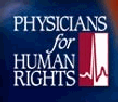Radiology - Technology Information Portal
Monday, 31 March 2025
'Iodide-Induced Hyperthyroidism' Searchterm 'Iodide-Induced Hyperthyroidism' found in 1 term [ • ] and 2 definitions [• ]Result Pages : • Iodide-Induced Hyperthyroidism
Iodinated contrast media contain small amounts of free iodide. Too much free iodide in the blood may cause hyperthyroidism in patients at risk, but contrast medium induced thyrotoxicosis is rare. The free iodide may also interfere with nuclear medicine diagnostic tests and treatment. However, iodinated contrast agents do not affect thyroid function tests (e.g., T3, T4, TSH) in patients with a normal thyroid. Guidelines were prepared by the 'Contrast Media Safety Committee of the European Society of Urogenital Radiology' and discussed on the Tenth European Symposium on Urogenital Radiology in September 2003. Tests of thyroid function before the injection of contrast agents may only be indicated in areas with dietary iodine deficiency. Patients with Graves' disease, multinodular goiter with thyroid autonomy, especially elderly and patients who lives in areas of iodine deficiency are at risk to develop thyrotoxicosis after IV contrast medium and should be monitored by endocrinologists after contrast enhanced CT exams. Prophylaxis may offer some protection in selected high-risk individuals but is not generally recommended. The free iodide of iodinated contrast agents interferes with thyroidal iodide uptake and impedes diagnostic thyroid scintigraphy and radio-iodine treatment of thyroid malignancies for 2 months after administration. • Adverse reactions on contrast agents are rare, but like all other pharmaceuticals, contrast media are not completely without side effects. Adverse effects to contrast media include allergic symptoms, anaphylactoid reactions, chemotoxic reactions, idiosyncratic reactions, contrast-induced nephropathy, iodide-induced hyperthyroidism and local tissue damage. An adverse reaction can be related to dose, the toxicity, and the physio-chemical properties of the contrast agent, for example osmolality, viscosity, and hydrophilicity. Side effects such as a metallic taste in the mouth, generalized warmth or flushing, nausea and vomiting, increase with rapid flow and large volume of the injected agent. Although venous tolerance is usually good, there have been reports of sensation like burning, stinging or numbness and of venospasm. Characterization of adverse reactions include:
•
Allergic drug reactions never occurs on the first exposure, but it can occur even with small amounts.
•
•
Idiosyncratic reactions can occur on first exposure to the contrast medium. And unlike a side effect, the reaction occurs only in susceptible individuals, probably due to a genetic or metabolic abnormality.
Further Reading: Basics:
News & More:
•
Radiographic contrast media (RCM) contributes important information to the diagnostic process. Actual contrast agents are safe drugs. Adverse reactions are rare, the incidence and severity of side effects decrease with the use of nonionic and low-osmolar contrast media. Adverse reactions are diverse, ranging from mild physiological disturbances to very rare life-threatening anaphylactic or anaphylactoid reactions. Users of contrast agents must be aware of the risk factors and be prepared to promptly manage adverse effects. Side effects that may occur with intravascular administration of contrast agents are also possible after administration by other paths. Increased risk to an adverse reaction includes patients with a history of a previous reaction to a contrast medium, a known sensitivity to iodine, or a known clinical hypersensitivity (bronchial asthma, hay fever, and food allergies). See also Contrast-Induced Nephropathy, Iodide-Induced Hyperthyroidism and Idiosyncratic Reactions. Further Reading: Basics:
News & More:
Result Pages : |
Radiology - Technology Information Portal
Member of SoftWays' Medical Imaging Group - MR-TIP • Radiology-TIP • Medical-Ultrasound-Imaging
Copyright © 2008 - 2025 SoftWays. All rights reserved.
Terms of Use | Privacy Policy | Advertising
Member of SoftWays' Medical Imaging Group - MR-TIP • Radiology-TIP • Medical-Ultrasound-Imaging
Copyright © 2008 - 2025 SoftWays. All rights reserved.
Terms of Use | Privacy Policy | Advertising
[last update: 2023-11-06 02:01:00]




